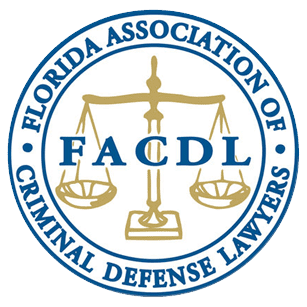
Undocumented immigrants and foreign nationals living in the United States face harsh consequences for even minor criminal convictions, including deportation.
Because a criminal conviction can result in such a serious punishment, non-citizens should never treat an encounter with the police lightly. Sarasota criminal defense lawyer Erika Valcarcel has experience helping people keep their records clean and can help.
Contact Erika Valcarcel, Criminal Defense Lawyer, P.A. at (941) 353-7900 to schedule an appointment. Don’t delay and don’t talk to police or prosecutors about your case before consulting defense attorney Valcarcel.
Criminal Law and Non-Citizens
When a citizen is convicted of a crime there may be penalties that range from fines, imprisonment, probation, parole, and community service. Non-citizens could face all of those plus trouble with their immigration status, which can lead to deportation.
Just who are susceptible to deportation because of criminal convictions? Any non-citizen resident could be deported from the United States after being convicted of a crime. Non-citizens include: undocumented immigrants, foreign nationals (such as students studying at US schools from abroad), and green cardholders, despite having “permanent residence status.” In short, anyone who isn’t a U.S. born or naturalized citizen is a non-citizen.
While all non-citizens could be subject to deportation depending on the crime committed, understand that immigration status can play a role in how easy or hard the process might be. For example, undocumented immigrants face deportation for minor crimes unlike permanent residents. Bear in mind that while deportation might not occur to a permanent resident because of a minor crime, a conviction could hurt the chances of any upgrade in immigration status, such as becoming a citizen through naturalization.
What Crimes Can Result in Deportation?
Immigration law is complex and no more so than when a non-citizen has been convicted of a crime. Generally, individuals could face deportation if convicted of an aggravated felony or a crime of moral turpitude.
In the context of immigration law, aggravated felonies include more than crimes that are labeled a felony. Some misdemeanors can be included. To be an aggravated felony, the crime must be one of violent crime or a theft crime with a prison term longer than a year. Crimes in this category are tax fraud, contempt of court (failure to appear), sexual abuse of a minor, drug or firearm trafficking, racketeering, gambling, fraud, smuggling undocumented immigrants, conspiracy, and others.
Crimes of moral turpitude are those that society has deemed morally unacceptable. If a non-citizen is convicted of a crime in this category within five years of entering the country, deportation could occur and may not be eligible for relief from removal. Examples of these crimes include child abuse, tax evasion, fraud, and perjury.
In addition to aggravated felonies and crimes of moral turpitude, there are additional crimes that if convicted of you can face deportation. These include violating state or federal drug laws, threatening certain politicians or office holders, treason, and domestic violence.
As you can see, there are so many crimes where conviction can end in deportation, you must seek the advice of counsel if you find yourself facing charges. By working with Attorney Valcarcel, you may be able to avoid a criminal record that would harm your immigration status.
Non-citizens in Legal Trouble Need a Criminal Defense Attorney
When issues of immigration intersect with criminal convictions, you need an experienced attorney to help you through these complex legal matters. Conviction of a wide range of crimes could jeopardize your immigration status and end in your removal from the United States. By working to get your charges dismissed or reduced, Erika Valcarcel, Criminal Defense Lawyer, P.A. can help you avoid possible deportation or other consequences to your immigration status.
Call us at (941) 353-7900 to discuss your case.
View All Blogs

